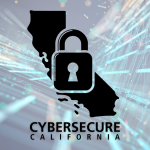Non-profits in California play a crucial role in serving communities, advocating for change, and providing essential services. In the digital age, ensuring the cybersecurity of your non-profit is not just about protecting data; it’s about safeguarding your mission, maintaining trust, and ensuring the continuity of your services. This guide outlines why cybersecurity is vital for non-profits and how you can begin to protect your organization against digital threats.
Why Cybersecurity Matters for Non-Profits:
Sensitive Data Protection
Non-profits often handle a wealth of sensitive information, including donor details, financial records, and personal data of beneficiaries. Securing this data is crucial to protect those you serve and work with from potential harm.
Reputation and Trust
Your non-profit’s reputation is one of its most valuable assets. A data breach can severely damage the trust you’ve built with donors, beneficiaries, and the community, leading to long-term impacts on fundraising and operations.
Regulatory Compliance
From the California Consumer Privacy Act (CCPA) to federal regulations like HIPAA, non-profits must navigate a complex landscape of data protection laws. Understanding and complying with these regulations is essential to avoid penalties and legal issues.
Resource Constraints
Non-profits often operate with limited resources, making them attractive targets for cybercriminals. Implementing effective cybersecurity measures can be challenging but is essential to protect against financial and operational disruptions.
Technology Dependence
As non-profits increasingly rely on digital tools for fundraising, communication, and operations, the potential impact of cyber threats grows. Ensuring the security of these technologies is crucial to avoid disruptions and data loss.
Social Engineering Risks
The open and collaborative nature of many non-profits can make them particularly vulnerable to social engineering attacks, such as phishing. Building a culture of cybersecurity awareness is vital to protect against these types of threats.
Starting Points for Cybersecurity
1. Risk Assessment
Begin by understanding the specific cybersecurity risks facing your non-profit. Consider the types of data you hold, the technologies you use, and the potential threats.
2. Basic Cyber Hygiene
Implement fundamental cybersecurity practices, such as using strong passwords, keeping systems updated, and regularly backing up data.
3. Training and Awareness
Educate your staff and volunteers about common cyber threats and best practices for security. Regular training can significantly reduce the risk of accidental data breaches or successful phishing attacks.
4. Incident Response Planning
Develop a plan for responding to cybersecurity incidents. Knowing how to react quickly and effectively can minimize the impact of a breach or attack.
5. Seeking Expert Help
Consider partnering with cybersecurity experts or service providers who can help you understand your risks and implement appropriate defenses, especially if you lack in-house expertise.
In a world increasingly driven by technology, cybersecurity is not an optional extra for non-profits; it’s a fundamental part of protecting your organization and its mission. By taking proactive steps to understand and mitigate cyber risks, you can ensure that your non-profit continues to operate effectively and maintain the trust of those you serve.

